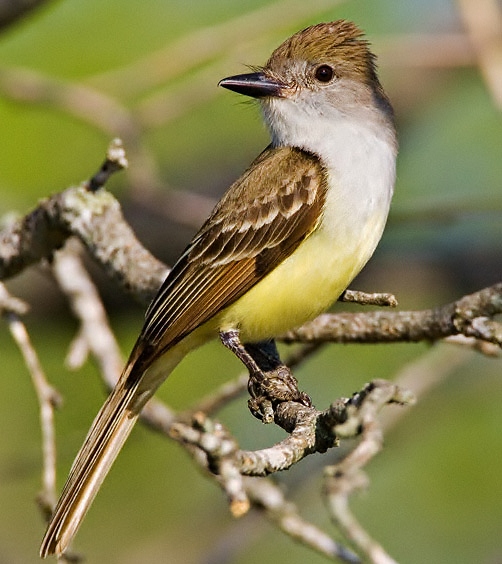Myiarchus tyrannulus
 |
| Photo by Greg Lasley (Greg Lasley Nature Photography) |
Common name:
brown-crested flycatcher (en); maria-cavaleira-de-rabo-enferrujado (pt); tyran de Wied (fr); copetón tiranillo (es); braunschopftyrann (de)
Taxonomy:
Order Passeriformes
Family Tyrannidae
Range:
This species is found breeding from the southern United States down to Argentina and Bolivia, and on Trinidad and Tobago. It is resident in most of its range, individuals breeding in the United States retreat to Mexico or southern Florida in winter.
Size:
The brown-crested flycatcher is 20-22 cm long and weighs 30 g.
Habitat:
These birds are found in saguaro deserts, riparian deciduous woodlands, and shade trees in urban areas. They can also be found in open woodlands of mesquite, hackberry, as well as in cottonwood, willow, and sycamore woodlands.
Diet:
They primarily eat insects, which they catch in flight. They also collect some food on the ground, namely insect larvae and fruits.
Breeding:
Brown-crested flycatchers breed in May-December. They nest in a tree cavity, often in woodpecker holes or in human made holes. There the female lays 3-6 yellowish eggs which are incubated for 13-15 days. The chicks are fed by both parents and ledge 15-16 days after hatching.
Conservation:
IUCN status – LC (Least Concern)
This species has an extremely large breeding range and a global population of 8 million individuals. The population trend is increasing in North America, but there are no good quality trend data regarding the much larger South American population.







